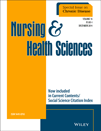 A cell biologist who falsifed Western blots has notched a second retraction, with one more expected after a investigation at Nanyang Technological University in Singapore.
A cell biologist who falsifed Western blots has notched a second retraction, with one more expected after a investigation at Nanyang Technological University in Singapore.
First author Sudarsanareddy Lokireddy, now apparently a research fellow at Harvard, did not agree to the retraction, the result of “a substantial number of falsifications.”
In December, we covered the results of the NTU investigation, where Lokireddy used to work. During that investigation, he admitted to falsifying data, Research Integrity Officer Tony Mayer told us. The end result: three retractions.
One of those papers was retracted by Cell Metabolism in December. The second paper, published in Molecular Endocrinology, has been cited 52 times, according to Thomson Scientific’s Web of Knowledge. The retraction note explains which figures were falsified:








